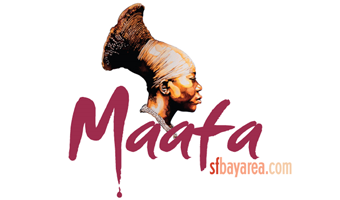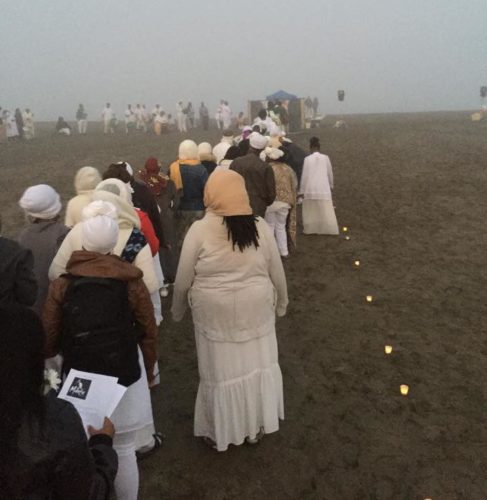[There are only fifteen days left in the TWH Fall Fund Drive. Donate today. Don’t miss out on some great perks, while helping to support an important service in the collective Pagan, Heathen, and polytheist worlds. Remember “We don’t stir the cauldron. We cover it.” And it is your support that keeps our team covering the important stories and the diverse issues that matter to you. This is your community; TWH is your community news source. Donate today and share our link! Thank you.]

Cultures throughout the world have beliefs and traditions honoring ancestral practices. Ancestral veneration is not just a hot topic in October when the popular holiday of Halloween hits the mainstream celebration circuit, but it is also a practice routinely honored in sacred space and in many ways throughout the year.
![[Photo Credit: Crystal Blanton]](https://wildhunt.org/wp-content/uploads/2016/10/14595548_10211167771575010_2190708380385699020_n-500x375.jpg)
[Photo Credit: Crystal Blanton]
So when I heard of a celebration honoring the very specific ancestors of the Middle Passage and slavery, I knew it was important for me to be present.
The Annual Maafa Commemoration began on Oct. 9 at Ocean Beach in San Francisco, California. This event celebrated it’s 21st year of putting on the Maafa celebration in the Bay Area.

According to the Maafa SF Bay Area website, Maafa is a Swahili word for “disaster, calamity, or terrible occurrence.” It has come to be known to describe the Trans-Atlantic Slave Trade, otherwise called the Middle Passage. It is also often referred to as the “Black Holocaust” within communities of people of African ancestry.
The Maafa SF Bay Area group has continued to facilitate this open “commemoration ceremony and mourning ritual” to honor the ancestors that suffered in the middle passage, and to those who have continued to suffer under the weight of the aftermath of slavery into modern day. The website invites all people of African descent to come to the remembrance to support personal and collective cultural healing for those of the African diaspora. The website states:
In the San Francisco Bay Area, October is Maafa Awareness Month–it is a time to reflect on the legacy of slavery: victims and beneficiaries in the short and long term and look at ways to mend, repair and heal the damage to Pan African descendants of the enslaved and their New Afrikan societies. The toll has been tremendous: psychological, economic, social, physical, emotional and spiritual.

[Photo Credit: Crystal Blanton]
I arrived about 5:30 AM, in the dark of the morning with my 15 year old son, several family members, and a couple of fellow Black Pagan friends. There were well over 100 other people of African descent gathered around a fire burning on Ocean Beach, and the air was filled with the rhythmic pounding of the drums. People were standing, dancing, and celebrating in the dark morning hours to honor the ancestors of the TransAtlantic Slave Trade.
In the crowded darkness and dampness of the beach, we gathered among people we did not know. In any other context this would have been quite frightening, but among a few friends and several family members, I felt strongly comforted by the energy of the shared legacy present in the air.
What followed was a series of events that contributed to the overall experience of connection and mourning that comes with celebrating the that shared history of commiseration among the descendants of slaves living here in the United States.
The unfolding of events took up about 5 hours as the sun came up. A series of symbolic and magical moments happened, all of which were profoundly and spiritually impactful for me as a Black woman. The drums continued to beat throughout the dark and into the light of day while we went through what felt like initiatory, magical, and ritualistic honoring of the ancestors, our journey, and the legacy of those who were enslaved during the Middle Passage.
![[Photo Credit: Crystal Blanton]](https://wildhunt.org/wp-content/uploads/2016/10/14671306_10211167773455057_7261371180821876020_n-500x375.jpg)
[Photo Credit: Crystal Blanton]
Standing in line for over an hour, I was able to really contemplate what that meant to me, to my family, and to my spiritual understanding of ancestral connection.
Following our journey through the “Gates of No Return”, we gathered by the ocean to share songs, ritual, poetry, stories, and connection in remembrance. Wanda Sabir welcomed us all to the healing ceremony with the following words:
As we process through the Door of No Return give thanks for what we remember…. Trauma induces amnesia, yet the body remembers what the mind forgets. Intuition is another name for Divine Spirit. The bones which lie between Alkebulan and the West link Black people genetically through this liquid experience: sweat, blood, feces, urine, milk, after-birth, death.
The transcontinental passage, our ancestors packaged as if they were inanimate cargo, connects our souls and scarred bodies to this day. The Maafa Commemoration acknowledges this. The yokes and chains and shackles many of us still bear speak to this, as does freedom.
After 5 hours of amazing alignment in the honoring of those who came before, I took some time to consider the spiritual significance of the experience and the importance of ancestral connection. While my own path honors the ancestors all the time, this level of veneration and remembrance is radically different than what I imagined it would be.
After the ceremony, I also took a moment to speak with two fellow Black Pagans who had attended this year’s Maafa Commemoration. What motivated each of them to go this year, and how did the experience contribute to spiritual path and experience of the world?
I went to a Maafa event years ago but hadn’t been in quite a while. I decided to go this year because I felt the need to reconnect with my ancestors’ presence.
I realize that honoring my ancestors and recognizing their sacrifices is an integral part of my spiritual path. My ancestors who suffered through the Middle Passage, through slavery, through Jim Crow and all the abuses and oppression Black people suffer until this day; enable me to keep pushing forward. – M. A.

[Photo Credit: Crystal Blanton]
That’s a good question. I had a busy week, and was looking forward to “sleeping in” until 8 that morning when I notice a post on Facebook with a video attached from the previous year. I am a native San Franciscan and had never heard of the ritual at Ocean Beach. I am studying to facilitate Ancestor Healing, so Ancestors are extremely important to me. I had just gone through yet again another, “Dark Night of the Soul” where I questioned my Spirit Guides to why they allowed us (Black Folk) to continue to suffer. When I pulled a card to help me reconnect to my core spiritual self, I go, “When the waters of life don’t flow, we feel disconnected. Our intuition or inner compass seems unable to get us back on track. A ceremony to connect with water may be indicated, where you can consciously connect to the power of this element.” It seemed like a “no brainer.”
I got some very powerful messages from my Ancestor that confirmed the path that I’m on. When we were holding the rope and walking down the path to “The Doors of No Return” I felt a deep sense of hopelessness, fear, and regret. I actually felt the chains around my neck. It helped me to realize that we (My Ancestors) have gone through so much and survived without a sense of bitterness or hate. And looking at what we still are going through it really showed me how resilient we are as a people. I am still sorting out my feelings, and even though it was a very emotional day with sooooooo many signs that they are with us, it gave me a renewed sense of hope. Hope that we will get through this “dark time” and more importantly, we are not alone! – Luna Pantera
There is power in being able to connect with the ancestors in true, authentic, and supportive ways. While many traditions within modern Pagan and polytheist communities embrace a connection to the ancestors, how are we addressing the distinct stories of the diverse ancestry that enters into our communities and circles? How can we acknowledge the necessity of such things when we engage in community ancestral practices? How are those specific stories left out of our shared spaces?

[Photo Credit: Crystal Blanton]
Yet, if there are Black people in our circles, keeping out the stories of these ancestors contribute to making those members feel unwelcome and unaccepted. The stories of our ancestors are important; our ancestors need to be heard.
I will continue to unpack my own experiences from participating in the Maafa ceremony and having a different level of connection to the very real history of my people. There is something about walking through the symbolic doors of no return together with my family, while facing the ocean, and hearing the waves hit the shore. In contemporary society, when many of us are experiencing and watching the horror of oppression and violence against ethnic and religious minorities, it is imperative that we hear what the ancestors have to say.
The Wild Hunt is not responsible for links to external content.
To join a conversation on this post:
Visit our The Wild Hunt subreddit! Point your favorite browser to https://www.reddit.com/r/The_Wild_Hunt_News/, then click “JOIN”. Make sure to click the bell, too, to be notified of new articles posted to our subreddit.

Thank you for this.